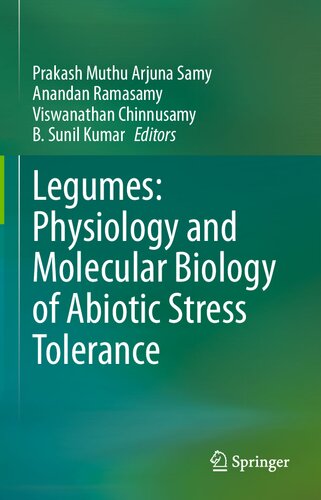

Most ebook files are in PDF format, so you can easily read them using various software such as Foxit Reader or directly on the Google Chrome browser.
Some ebook files are released by publishers in other formats such as .awz, .mobi, .epub, .fb2, etc. You may need to install specific software to read these formats on mobile/PC, such as Calibre.
Please read the tutorial at this link: https://ebookbell.com/faq
We offer FREE conversion to the popular formats you request; however, this may take some time. Therefore, right after payment, please email us, and we will try to provide the service as quickly as possible.
For some exceptional file formats or broken links (if any), please refrain from opening any disputes. Instead, email us first, and we will try to assist within a maximum of 6 hours.
EbookBell Team

0.0
0 reviewsThis edited volume provides state-of–the-art overview of abiotic stress responses and tolerance mechanisms of different legume crops viz., chickpea, mung bean, lentil, black gram, cowpea, cluster bean, soybean and groundnut.
Legumes play an important role in human nutrition and soil health through fixation of nitrogen. Legume production and productivity are vulnerable to different abiotic stresses. A proper understanding about the physiological and molecular basis of the legume crops is essential for genetic improvement of abiotic stress tolerance. This book consists of 15 chapters covering physiological and biochemical basis, molecular physiology, molecular breeding, genetics, genomics, transgenics, epigenetics of drought, saline, high temperature and nutrient deficiency stresses, and the role of microRNAs in abiotic stress tolerance.
This volume offers new perspectives in legume crop abiotic stress management, and is useful for various stakeholders, including postgraduate students, scientists, environmentalists and policymakers.